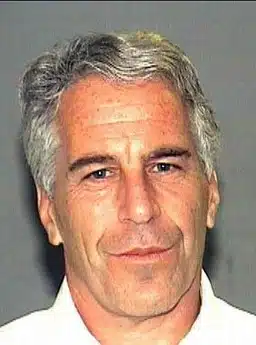 SCHEDULE A CALL
SCHEDULE A CALL
Source: Palm Beach County Sheriff's Department

Source: United States Federal Government

Source: Weill Cornell Medicine
Human trafficking remains a significant issue in the United States, despite the enactment of the Victims of Trafficking and Violence Protection Act over two decades ago. This law was intended to provide comprehensive support for victims and strengthen punishments for traffickers. However, the reality for many victims, particularly women involved in illicit massage businesses, tells a different story.
The case of Shirley, a survivor of trafficking, highlights the complexities and failures of the current system. Initially lured into the industry under false pretenses by her husband, Shirley found herself trapped in a cycle of exploitation and fear. Her story is not unique; it reflects the experiences of many women who are coerced into the sex trade through force, fraud, or coercion.
For victims like Shirley, escaping the grip of traffickers is only the beginning of their struggles. The trauma of their experiences often leaves them with deep psychological scars, requiring intensive therapy to overcome feelings of self-blame and fear. Additionally, the practical challenges of rebuilding their lives—such as finding employment, securing housing, and overcoming language barriers—can be overwhelming.Many victims are new immigrants, often undocumented, which adds another layer of vulnerability. They are frequently isolated from their communities and lack the support networks necessary to escape their circumstances. This isolation is compounded by traffickers who use sophisticated methods to manipulate and control their victims, making it difficult for law enforcement to identify and prosecute offenders.
Technology has become a critical tool for traffickers, enabling them to recruit and control victims with greater ease. Apps like WeChat, KakaoTalk, and Line are commonly used to facilitate communication between traffickers and victims, making it difficult for authorities to track and intervene. These platforms allow traffickers to maintain anonymity and evade detection, further complicating efforts to combat trafficking.
The use of technology also enables traffickers to adapt their methods, moving operations to less visible locations and using outcalls to avoid detection. This shift makes it even more challenging for law enforcement to identify and assist victims, as they are often hidden away in private residences or hotels.
Despite the intentions of the Victims of Trafficking and Violence Protection Act, legal and social barriers continue to impede justice for victims. Law enforcement agencies often struggle to build cases that lead to convictions, relying heavily on victims to testify against their traffickers. This expectation is unrealistic, given the fear and trauma many victims experience.
Prosecutors frequently settle for plea deals on lesser charges, such as pimping or money laundering, resulting in lighter sentences for traffickers. This approach fails to address the root causes of trafficking and allows the cycle of exploitation to continue.
Moreover, societal perceptions of victims often hinder their ability to seek help. Many women are seen as willing participants rather than victims, which perpetuates stigma and prevents them from accessing the support they need. This misunderstanding is exacerbated by cultural and language barriers, which further isolate victims from potential allies.
To effectively combat human trafficking, a multifaceted approach is necessary. This includes strengthening legal frameworks to ensure traffickers face appropriate consequences and providing comprehensive support for victims. Advocacy groups and social services play a crucial role in helping survivors rebuild their lives, offering resources such as counseling, legal assistance, and job training.
Education and awareness campaigns are also vital in changing societal perceptions and reducing stigma. By highlighting the realities of trafficking and the experiences of survivors, these initiatives can foster greater understanding and empathy within communities.
The legal landscape surrounding human trafficking is complex and requires a nuanced approach. While the Victims of Trafficking and Violence Protection Act was a significant step forward, it is clear that more needs to be done to protect victims and hold traffickers accountable.
One of the key challenges is the reliance on victim testimony to secure convictions. This places an undue burden on survivors, who may be too traumatized or fearful to testify. Legal reforms should focus on reducing this dependency by strengthening investigative techniques and utilizing technology to gather evidence.
Additionally, it is crucial to address the systemic issues that allow trafficking to persist. This includes improving coordination between law enforcement agencies, providing adequate training on the complexities of trafficking, and ensuring that victims have access to legal representation and support services.Ultimately, a collaborative effort between legal professionals, advocacy groups, and policymakers is necessary to create a more effective and compassionate response to human trafficking.
Thomas Giuffra, Esq. - The Abuse Lawyer NY
551 5th Avenue, 29th Floor,
New York, NY 10017
(646) 413-6394
Hours Of Operation
Monday: 24 Hours
Tuesday: 24 Hours
Wednesday: 24 Hours
Thursday: 24 Hours
Friday: 24 Hours
Saturday: 24 Hours
Sunday: 24 Hours
Cases We Handle
Sexual abuse lawyer
Child abuse lawyer
Clergy abuse lawyer
Private boarding school abuse lawyer
Doctor abuse lawyer
Daycare abuse lawyer
Hazing and Bullying abuse lawyer
Massage spa abuse lawyer